
PRAISE FOR THE HAPPY TANK PUPILS FEEDBACK Briony Year 6 In the morning when I practise filling my Happy Tank if I am ever feeling sad, I know that two minutes on each level of
The Happy Tank can make me feel happier. I have noticed other Kind Kids see how happy and confident I am. Johnny Year 6 I like
The Happy Tank because when I wake up early it gets me ready for the day and I have noticed when I get to school, I pay more attention to the teacher and I feel relaxed and calm. Abi Year 9 Since practising the exercises in
The Happy Tank in the morning, I feel less upset and depressed, happier and more self-confident. The book has helped my mental health. I also have more friends now because I am happier in myself.
It really does work, you just have to do what it says, which is easy peasy lemon squeezy, and to practise, practise, practise. Tori Year 9 What I have learnt from practising the exercises in The Happy Tank is to not take life too seriously and to have fun whilst learning new things. It has shown me that we can always make time to take care of our own wellbeing. Scott Year 6 The Happy Tank will help other pupils because it makes you think happier thoughts. It helps me reflect on my choices and I believe it will help other children too. Mackenzie Year 6 It can help other children by helping them calm down and not be as angry or sad.
It keeps them in a good state of mind. I like the way it helps me calm down. Sophie Year 6 It helped me with my anger, I tend to get angry very easily and it has helped me calm down and not have as many behaviour incidents inside and outside of the classroom. I would say if you have a short temper, practise the exercises in The Happy Tank and it will help you have less anger. Zara Year 6 It has made me feel happier throughout the day. I used to get moody a lot throughout the day, but now I dont as much.
I think it can help other children feel calmer. BLOOMSBURY EDUCATION Bloomsbury Publishing Plc 50 Bedford Square, London, WC1B 3DP, UK 29 Earlsfort Terrace, Dublin 2, Ireland This electronic edition published in 2023 by Bloomsbury Publishing Plc BLOOMSBURY, BLOOMSBURY EDUCATION and the Diana logo are trademarks of Bloomsbury Publishing Plc First published in Great Britain, 2023 Text copyright John Magee, 2023 Illustrations copyright Bloomsbury Education, 2023 Illustrations by Sarah Lawrence, 2023 John Magee has asserted his right under the Copyright, Designs and Patents Act, 1988, to be identified as Author of this work Bloomsbury Publishing Plc does not have any control over, or responsibility for, any third-party websites referred to or in this book. All internet addresses given in this book were correct at the time of going to press. The author and publisher regret any inconvenience caused if addresses have changed or sites have ceased to exist, but can accept no responsibility for any such changes All rights reserved
You may not copy, distribute, transmit, reproduce or otherwise make available this publication (or any part of it) in any form, or by any means (including without limitation electronic, digital, optical, mechanical, photocopying, printing, recording or otherwise), without the prior written permission of the publisher. Any person who does any unauthorised act in relation to this publication may be liable to criminal prosecution and civil claims for damages.  This book is dedicated to Chris Lickiss, National Leader of Education and Executive Headteacher, the kindest gentleman I have ever met, who taught me so much about the importance of valuing others and how to create amazing relationships.Thank you Chris for helping me transform so many childrens lives.
This book is dedicated to Chris Lickiss, National Leader of Education and Executive Headteacher, the kindest gentleman I have ever met, who taught me so much about the importance of valuing others and how to create amazing relationships.Thank you Chris for helping me transform so many childrens lives.
 CONTENTS
CONTENTS  W hat an honour it is to write a foreword for this book! Its central topic of happiness is very dear to my heart.
W hat an honour it is to write a foreword for this book! Its central topic of happiness is very dear to my heart.  This book is dedicated to Chris Lickiss, National Leader of Education and Executive Headteacher, the kindest gentleman I have ever met, who taught me so much about the importance of valuing others and how to create amazing relationships.Thank you Chris for helping me transform so many childrens lives.
This book is dedicated to Chris Lickiss, National Leader of Education and Executive Headteacher, the kindest gentleman I have ever met, who taught me so much about the importance of valuing others and how to create amazing relationships.Thank you Chris for helping me transform so many childrens lives.
 CONTENTS
CONTENTS  W hat an honour it is to write a foreword for this book! Its central topic of happiness is very dear to my heart.
W hat an honour it is to write a foreword for this book! Its central topic of happiness is very dear to my heart.
When I was at primary school, I used to think about it a great deal. Why are some happy and others not? Why do my feelings of happiness seem to fade like the ever-dimming memory of a holiday and lingering feeling of sadness at its distant recollection. I think many of us grow up thinking about questions like these as we try to understand life and what it entails. Many thinkers such as the ancient Greek philosopher, Aristotle, and Tibetan spiritual leader, the Dalai Lama (whom you will catch a glimpse of later on in this book) held the belief that happiness is our ultimate goal in life in other words, that it is not a constant state but something to be strived for in our actions and the relationships we foster around us and in the type of lifestyle we choose and can feel a sense of pride in. Both Aristotle and the Dalai Lama believed that leading a happier life ultimately derives from our habits and day-to-day actions. We are what we repeatedly do, Aristotle once wrote.
Happiness is not something ready-made, it comes from our own actions, the Dalai Lama said. Learning to be happier comes from the actions we carry out on a daily basis. This is precisely where this book comes into the picture! Its author, John Magee, is a 21st century Aristotle, with the wisdom of the Dalai Lama, and the looks and humour of Paddy McGuinness (if unknown to you, look him up the resemblance is to all accounts uncanny)! His book, The Happy Tank, is a practical guide on how to forego old, unhelpful habits and start new ones afresh that help us to feel happier for longer. You will learn how to take care of yourself better; how to use your breath to stay calm; how to reflect on what you want in life; how to be kinder; how to use affirmations to talk to yourself in a more supportive way; how to be grateful for what you have; and finally how to happy tap (I invite you to read on and find out about that!). What I also love about this book is that John Magee shows us how to accept, even embrace our more uncomfortable emotions like sadness, anger or jealousy. As John says, feelings each have their place and none will ever stick around forever.

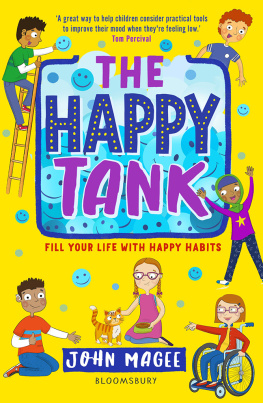
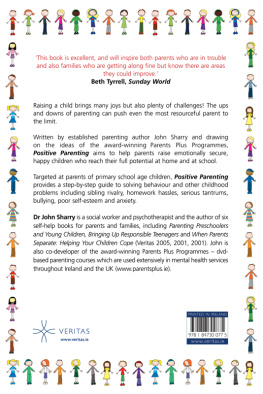

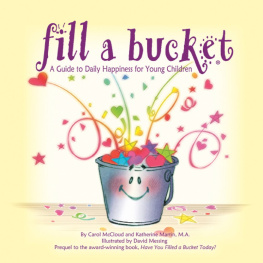
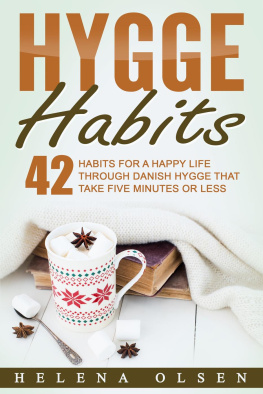
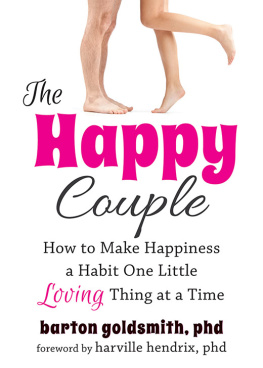
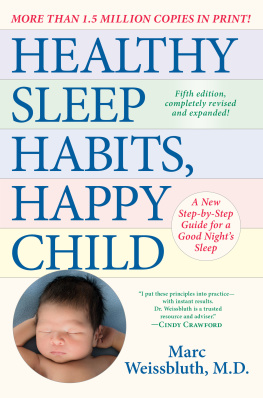
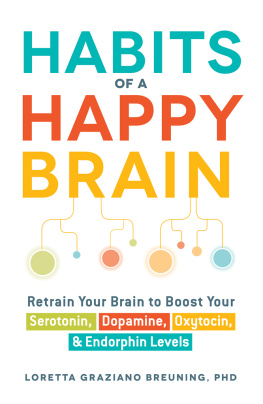
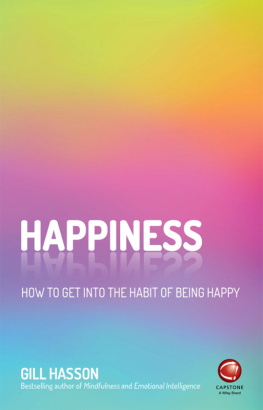
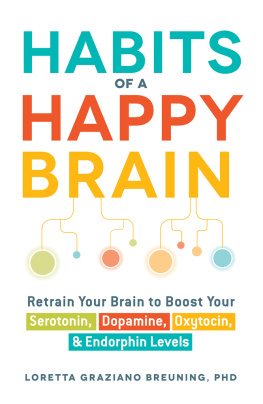

 PRAISE FOR THE HAPPY TANK PUPILS FEEDBACK Briony Year 6 In the morning when I practise filling my Happy Tank if I am ever feeling sad, I know that two minutes on each level of The Happy Tank can make me feel happier. I have noticed other Kind Kids see how happy and confident I am. Johnny Year 6 I like The Happy Tank because when I wake up early it gets me ready for the day and I have noticed when I get to school, I pay more attention to the teacher and I feel relaxed and calm. Abi Year 9 Since practising the exercises in The Happy Tank in the morning, I feel less upset and depressed, happier and more self-confident. The book has helped my mental health. I also have more friends now because I am happier in myself.
PRAISE FOR THE HAPPY TANK PUPILS FEEDBACK Briony Year 6 In the morning when I practise filling my Happy Tank if I am ever feeling sad, I know that two minutes on each level of The Happy Tank can make me feel happier. I have noticed other Kind Kids see how happy and confident I am. Johnny Year 6 I like The Happy Tank because when I wake up early it gets me ready for the day and I have noticed when I get to school, I pay more attention to the teacher and I feel relaxed and calm. Abi Year 9 Since practising the exercises in The Happy Tank in the morning, I feel less upset and depressed, happier and more self-confident. The book has helped my mental health. I also have more friends now because I am happier in myself.  This book is dedicated to Chris Lickiss, National Leader of Education and Executive Headteacher, the kindest gentleman I have ever met, who taught me so much about the importance of valuing others and how to create amazing relationships.Thank you Chris for helping me transform so many childrens lives.
This book is dedicated to Chris Lickiss, National Leader of Education and Executive Headteacher, the kindest gentleman I have ever met, who taught me so much about the importance of valuing others and how to create amazing relationships.Thank you Chris for helping me transform so many childrens lives.
 CONTENTS
CONTENTS  W hat an honour it is to write a foreword for this book! Its central topic of happiness is very dear to my heart.
W hat an honour it is to write a foreword for this book! Its central topic of happiness is very dear to my heart.